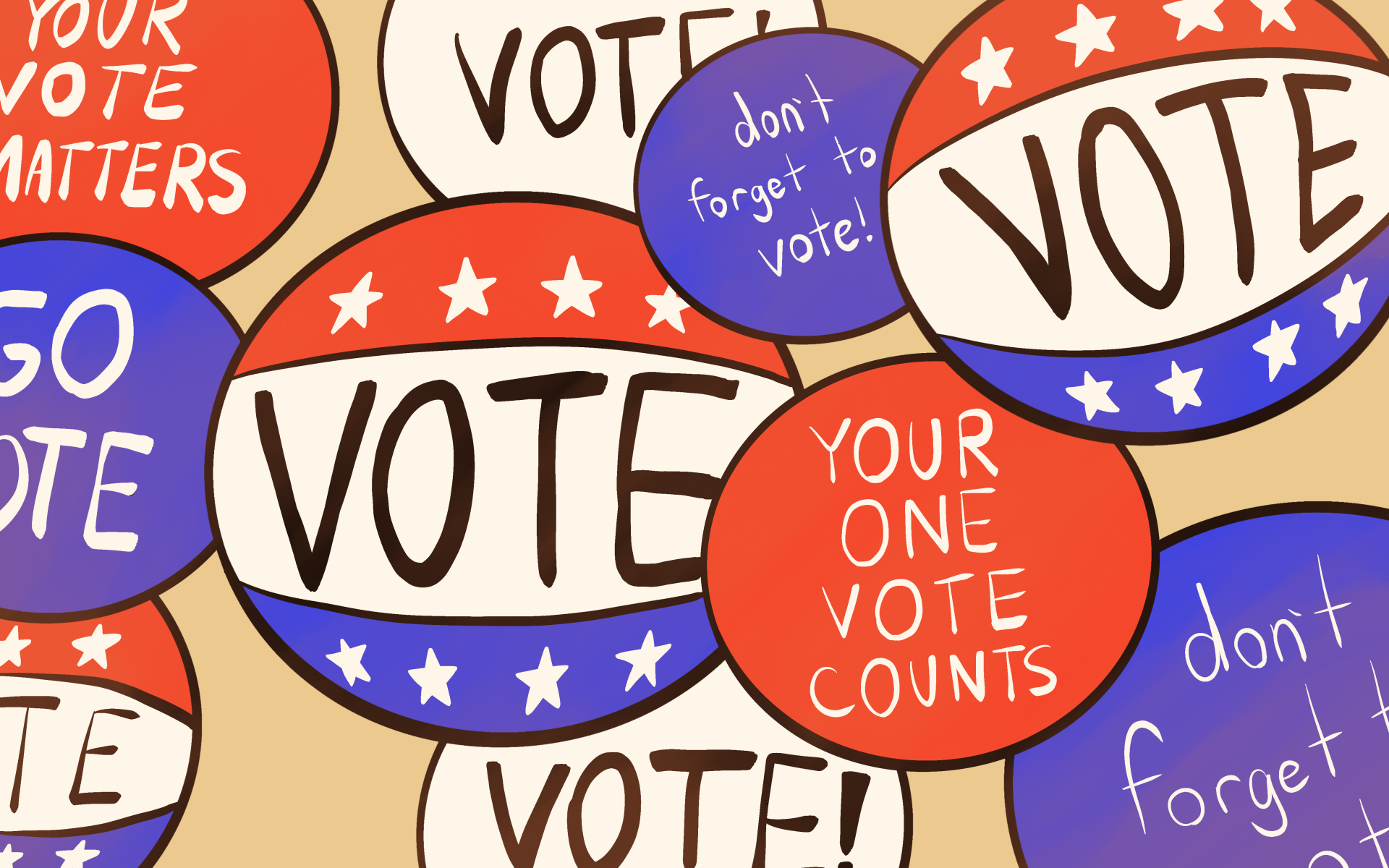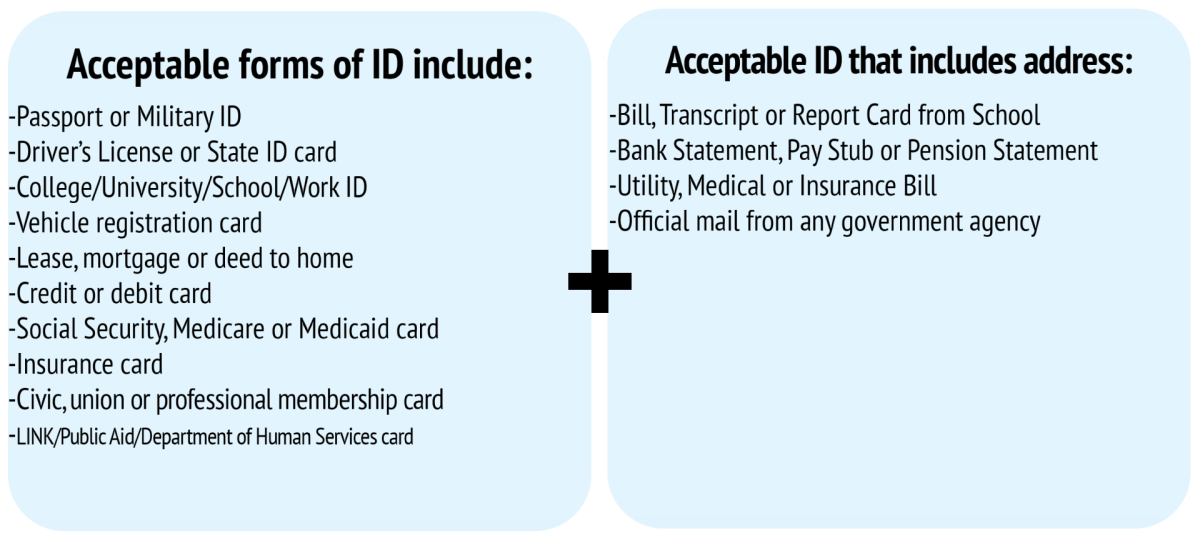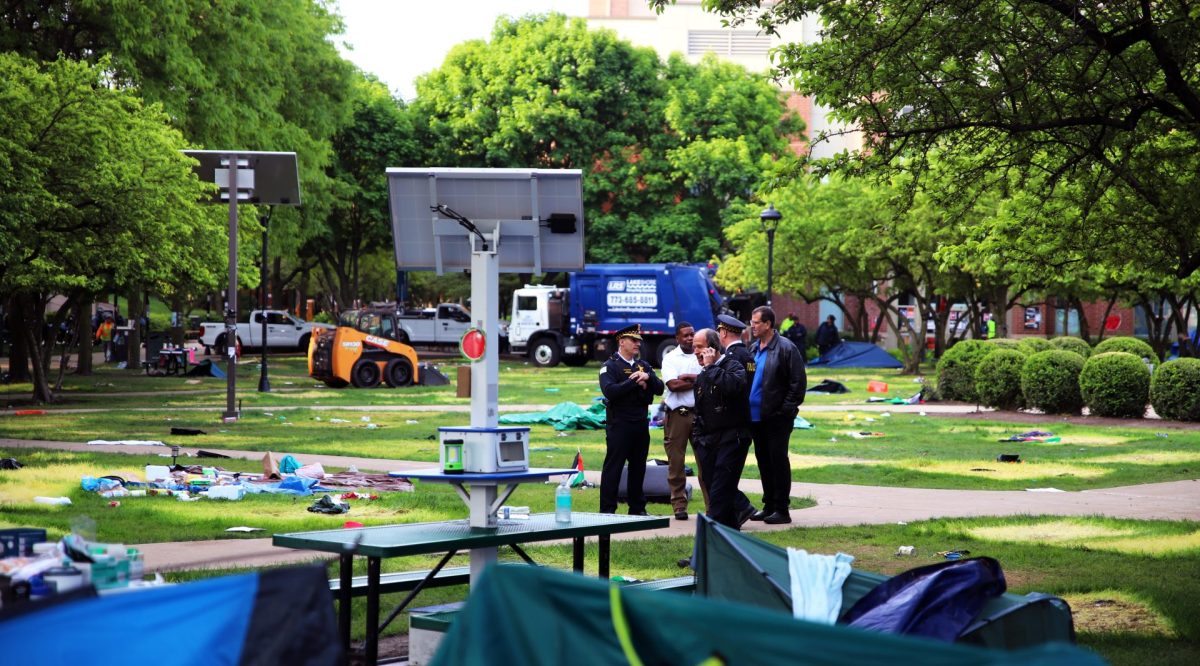Believe it or not, it’s already time for another election here in Chicago. The Illinois primary election will be held March 19, and early voting has already begun. Whether you’re from the city or moved here for school, you are entitled to vote in the city. Here is everything you need to know before going to the polls.
What elections are on the ballot?
What’s the deal with Bring Chicago Home?
Judge Kathleen Burke ruled Feb. 23 that the Bring Chicago Home referendum should not be on the March primary ballot and the votes will not be counted. Since ballots have already been printed, the question is on the ballot but its results may not be released. However, the Chicago Board of Election Commissioners appealed the court’s decision. If the court rules in its favor, the vote may count after all — so vote like it does count, whether that be for or against the referendum.
UPDATE: As of March 6, the referendum will appear on the ballot and the result will count. Chicago real estate groups attempted to appeal this decision to the Illinois Supreme Court; however the court denied this request on March 13.
Who is eligible to vote?
To vote, you must …
- Be a U.S. citizen.
- Be born on or before Nov. 5, 2006.
- Live in your precinct (Chicago address) at least 30 days before the election.
- Not claim the right to vote elsewhere.
- Not be in prison/jail serving time for a conviction. (Note: Ex-convicts who have been released from prison/jail and who meet all other requirements listed above are eligible to register and vote in Illinois. Ex-convicts who have been released and are on parole/probation ARE eligible to register and vote in Illinois.)
If you are not yet registered to vote, you are still entitled to vote. All early voting and Election Day polling places allow same-day voter registration.
How do I register to vote?
It’s too late to register online for the primary election, but you can still register to vote in person at a voting center during early voting or at your precinct polling location on March 19.
For same-day registration, the Chicago Board of Elections requires the presentation of two forms of ID. One of the forms must include a current mailing address.
If you cannot provide two forms of ID at the time of registering, you are still entitled to cast a provisional ballot. A provisional ballot allows you to vote while giving the Board of Elections more time to verify your identity.
For a provisional ballot to be counted, the voter must present ID to the Chicago Election Board, 69 W. Washington St., Suite 600, Chicago IL 60602, within seven days of the election.
Do I have to declare a political party?
Under Illinois law, voters in a Primary Election only vote on one ballot that lists the candidates for that party. Voters are free to stick with or switch parties from election to election, and selections in the Primary do not affect how a person may vote in any future elections.
During a Primary Election like the upcoming Presidential Primary March 19, 2024, you may request a specific party ballot when you go to vote — either in-person, early, or when requesting a Vote By Mail ballot. When the time comes to select your ballot, you may choose any party you wish. The party ballot selections for the upcoming election are: Democratic, Libertarian (in Wards 1, 5, 36, and 38 only), Republican, and nonpartisan (referenda questions only).
I’m registered to vote in my home state; can I vote here?
As long as you have lived in Chicago for at least 30 days before election day, you can vote in the city. Remember if you voted at home, you cannot vote in Chicago or vice versa. You can only vote once!
If you prefer to vote in your home state, you will need to see when the primary election is for your state and request a vote by mail or absentee ballot when time to do so.
Where do I vote?
On Election Day, a voter can either vote at the polling place assigned to that voter’s precinct or can vote at any of the 51 Vote Centers open on Election Day.
The Lincoln Park branch of the Chicago Public Library, across Fullerton from Ozanam Hall, is a universal vote center. The Chicago Board of Elections Supersite is located at 191 N. Clark St.— a 15 minute walk from the Loop campus.
Do I need to bring anything to vote?
If you are not registered to vote, bring the two forms of ID mentioned above. While ID is not required to vote in Illinois for those already registered — election judges and poll workers have the right to challenge someone’s attempt to vote, so it is recommended to bring a form of ID as a backup. However, if you don’t, you will still be able to cast a provisional ballot.
Voters may also bring any printed or written notes into the polling booth to reference. There are a lot of candidates on the ballot, so it is worth researching ahead of time and making a list of candidates to vote for. Find out what candidates will appear on your ballot here.
What should I not bring?
You cannot enter a polling site wearing or displaying partisan/political materials. You will be asked to leave and remove or cover the material before you can vote. Any pamphlets/candidate materials must also be concealed. Polling sites are intended to be nonpartisan.
You may not have your phone or any other electronic devices out at the polling site. If you wish to bring notes, they need to be printed or written out.
What are the hours of polling sites?
All polling sites are open from 6 a.m. and close at 7 p.m. on Election Day. However, if it is 7 p.m. and you have not voted but are still in line, you are legally entitled to vote. Stay in line. It is illegal for election judges not to allow you to vote if you are already in line.
During early voting, voting centers are open on weekdays: 9:00 a.m. to 6:00 p.m. Saturday: 9:00 a.m. to 5:00 p.m. Sunday: 10:00 a.m. to 4:00 p.m.
What if I already voted by mail?
If you have already decided to vote by mail, you have a few options if you decide to vote in person after all. If you have already received your mail ballot, take it to the polling place and surrender it to an election judge. They will void the ballot and allow you to vote as usual.
If you have not yet received the ballot, you will be asked to sign an affidavit certifying that you have not received the ballot. The judge will then issue a ballot, and you can vote as usual.
If you have received your ballot but lost it, you may sign an affidavit certifying that you have not voted in the election. You will then be able to vote with a provisional ballot. A provisional ballot will be counted as usual as long as they do not also receive the mail-in ballot.
What do I do if I experience voter suppression?
If any of these rights are violated, call Election Central on Election Day at 312-269-7870. Before Election Day during Early Voting, call 312-263-1394.
Another option is to call the Election Protection Hotline at 1-866-OUR-VOTE, via ACLU.
Editors Note: This story was updated on March 13 to reflect developing information regarding the “Bring Chicago Home” referendum.









